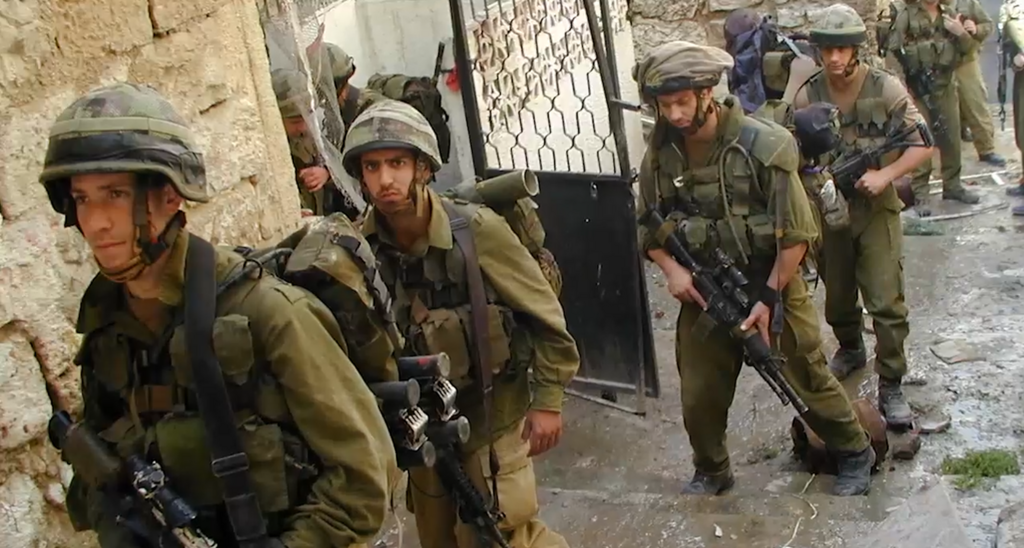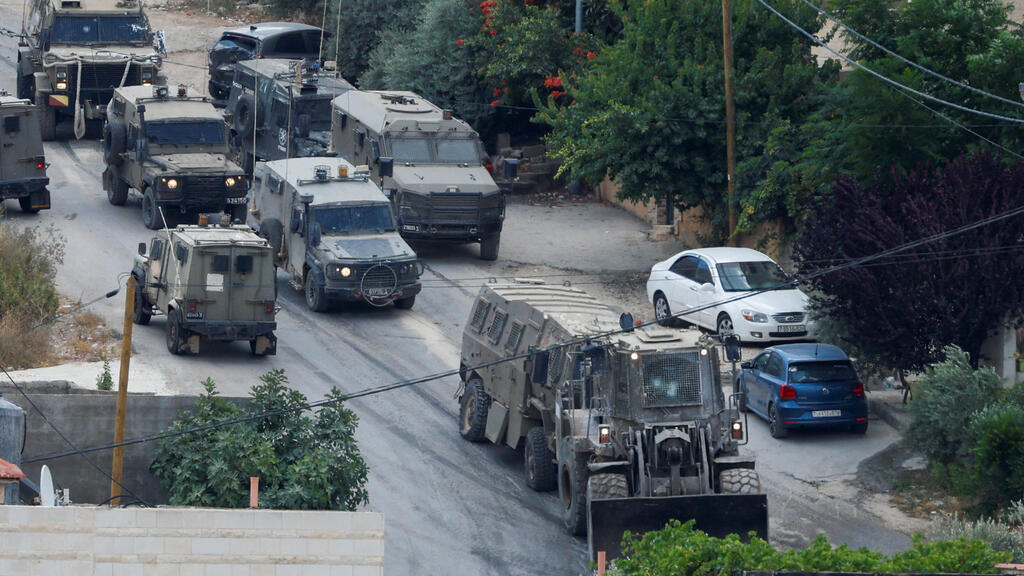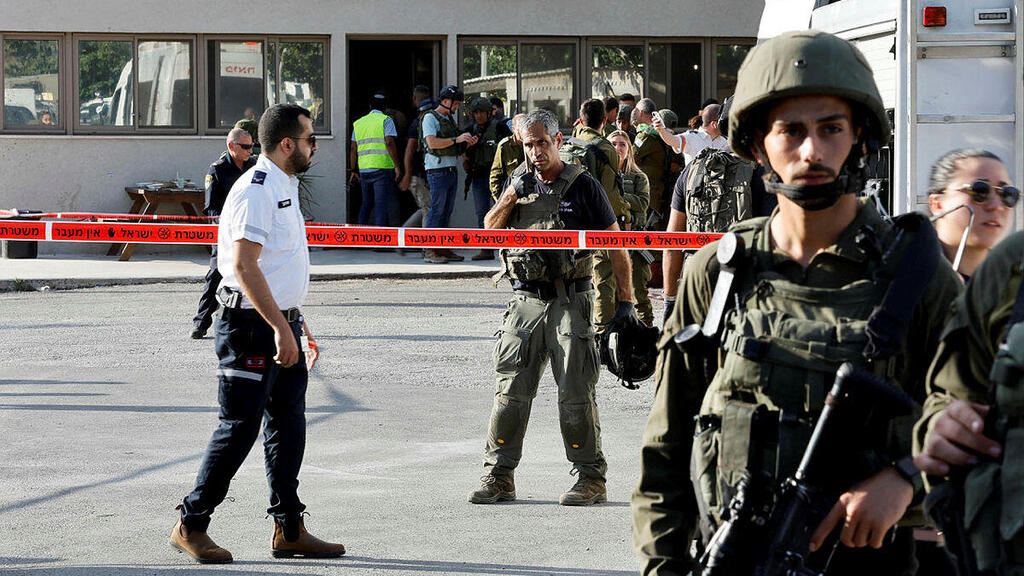There is an old saying that generals tend to fight the previous war, which leads to failures in the planning and execution of the next. Today, it appears that not only generals have this tendency but also politicians and the media here in Israel, who are dragged along with them.
Read more:
I'm referring to the calls from the far-right members of the Otzma Yehudit party to launch Operation Defensive Shield 2 to "defeat" the ongoing terror in the northern West Bank. Without taking into account the fact that the IDF already conducted Operation Defensive Shield 22 years ago when most Palestinian towns were outside the territory it currently occupies. Moreover, the intelligence capabilities back then were poor compared to the capabilities of the Shin Bet and the military intelligence units nowadays.
During the 2002 operation, the IDF reoccupied the territories that were handed over to Palestinian authority as part of the Oslo Accords, and the Shin Bet was able to conduct intelligence operations within them, suppressing terrorism and restoring Israel's freedom of action. However, the current situation is different, and the public debate still focuses on whether the IDF should launch a large-scale operation in the West Bank or not, and who is "responsible" for the fact that the IDF has not yet launched such an operation following previous terror attacks.
The statements made by politicians and the subsequent discussions in the media stem from the recent noticeable increase in the number and severity of terror attacks, particularly in the Jenin area. Additionally, it is not difficult to observe that the targeted raids carried out by the IDF and its special units, based on accurate intelligence provided by the Shin Bet, have not been successful in quelling terrorism or even significantly reducing it.
It is true that since the 2002 Operation Defensive Shield, the Shin Bet has been successful in thwarting hundreds of terror attacks each year. However, there are still significant gaps in the security apparatus. Palestinian assailants, either individually or in organized groups, sometimes manage to carry out deadly attacks, usually through shooting from a moving vehicle on the main shared routes between Palestinian territories and Israeli settlements in the northern West Bank.
Moreover, any entry into the Jenin refugee camp or the city of Jenin, even if carried out cautiously and initially by surprise, often escalates into what is referred to in the IDF as a "noisy operation." In such cases, IDF soldiers often find themselves confronting armed Palestinians from a very close range, who not only shoot at them but also throw improvised explosives.
As a result, they are forced to transition from using riot dispersal means to live fire to protect their lives. The outcome is the deaths of many Palestinians, most of whom are armed, but among them are also uninvolved civilians including children. The end result of these clashes is a cycle of bloodshed that continues and escalates. The funerals of the Palestinian casualties fuel the revenge desires of the young, most of whom are armed, and their motivation to harm and kill Jews increases.
Furthermore, the learning curve of Palestinian terrorists has risen, leading to an increasing and sophisticated use of explosives. These explosives, along with the large number of weapons circulating in refugee camps and their surroundings, pose a significant threat and noticeably restrict the operational freedom of the IDF in this area. The incident at the beginning of the week in Jenin is indicative of this.
In addition, the high number of Palestinian casualties resulting from clashes with security forces during arrest raids creates motivation for further attacks and undermines the international legitimacy of the State of Israel. The exchanges of fire and the use of explosives by armed militants make planning and executing targeted raids more difficult, even though they rely on advanced intelligence. The conclusion is that targeted operations and the arrest of wanted individuals in the northern West Bank achieve, more or less, what they can in suppressing terrorism and reducing attacks, and the security forces urgently need to find new forms of action.
The debate is primarily political, and as a result, the general public is unable to receive a true and balanced picture and does not understand the real considerations faced by decision-makers regarding the slow but persistent Palestinian terror, despite the continuous efforts by security forces in what is known as Operation Break the Wave. In order to make an informed decision regarding future actions in the northern West Bank, the political and military leadership of Israel needs to take into account the following parameters:
- Recognize the fact that the current operational pattern has worn out itself and will be difficult to sustain over time due to the required deployment of forces in the area, especially on the roads, in order to prevent Palestinian terror attacks and harm to Jewish civilians.
- Impact on the Palestinian arena: Prevent large numbers of Palestinians from other areas in the West Bank from joining in the fight, in response to many casualties and destruction in the northern West Bank in a broad and aggressive Israeli operation. This could lead to a third Intifada with many casualties and injuries on both sides. Additionally, it is important to remember that Hamas is attempting to gain control over Palestinians in the West Bank, and the main obstacles in its path are the Palestinian Authority, Fatah, and Mahmoud Abbas. Therefore, it is necessary to avoid weakening the Palestinian Authority as much as possible and to prevent complete chaos once Mahmoud Abbas is no longer in power.
- Alternative military and intelligence methods and tactics should be examined that can provide better results than the current operational pattern, which, as mentioned, has exhausted itself. This should take into account the expected results compared to the human cost as well as the economic expense. results should include a significant reduction in the ability of Palestinians to obtain or receive external means of warfare, weaponry, explosives, and rockets.
- Available forces for deployment without compromising the readiness and preparedness of the IDF for a large-scale multi-front war. In 2006, during the Second Lebanon War, we witnessed the damage caused to the readiness of ground forces and the command of the IDF as a result of almost the entire military, except for the air force and Navy, being engaged in ongoing security operations rather than training and preparing for war. It is forbidden for such a mistake to recur.
- The IDF and the Shin Bet should carry out a major operation to significantly enhance the quality and quantity of intelligence, which will serve as the basis for the operations in the field. It is reasonable to assume that a broad operation will "shake up" the area and yield extensive information. The Shin Bet should be prepared to handle a large number of detainees and assign a significant number of skilled interrogators who can extract the necessary information.
- Despite the political and social divide currently tearing the Israeli society apart, both the government and the security establishment must communicate with the public in a way that will result in cross-camp legitimacy, at a price that we might have to pay in order to minimize terror in the West Bank to a tolerable level. Even those who believe, probably rightly so, that a true solution to Palestinian terrorism can only be achieved through a political and physical separation between Jews and Palestinians, must recognize that this goal cannot be achieved overnight. In the meantime, significant efforts should be made to minimize the number of deadly attacks and achieve deterrence.
- Gaining international legitimacy for the security forces' activities through bridging the gap with the American government and aggressive public diplomacy, explaining through all traditional and social media channels the need for Israel to act aggressively and militarily to prevent attacks.
These considerations should guide decision-makers. They are based on the extensive experience accumulated within the security establishment and have a good chance of leading to a controlled and tolerable situation, even in the Jenin area. For example, in Nablus, which was a terrorist stronghold until about half a year ago, and the base of operations for the Lions Den terror cell, the IDF succeeded in carrying out several precise operations on a broad scale, leading to calm and a situation where the Palestinian Authority security forces entered and filled the void of lawlessness that existed there. Now a similar action needs to be taken in Jenin and its surroundings, and it is possible.




